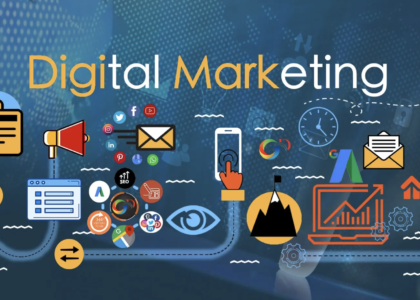In today’s digital landscape, effective marketing strategies are the cornerstone of business success. From small startups to multinational corporations, mastering digital marketing techniques is crucial for reaching and engaging with audiences in a meaningful way.
Understanding Digital Marketing
Digital marketing encompasses a broad range of tactics aimed at promoting products or services through digital channels. These include search engines, social media, email, websites, and more. The goal is to connect with potential customers where they spend their time online.
Key Components of a Successful Digital Marketing Strategy
- Search Engine Optimization (SEO): SEO remains fundamental, optimizing content to rank higher in search engine results. Keywords play a crucial role in this strategy, ensuring content is discoverable by relevant audiences searching for related topics.
- Content Marketing: Creating valuable, relevant content attracts and retains a target audience. From blog posts to videos and infographics, content should be informative and engaging, aligning with audience interests and needs.
- Social Media Marketing: Leveraging platforms like Facebook, Instagram, and LinkedIn allows businesses to connect directly with consumers, build brand awareness, and drive website traffic. Using hashtags and engaging content increases visibility and engagement.
- Email Marketing: Personalized email campaigns nurture leads and maintain customer relationships. Segmented lists and compelling calls-to-action (CTAs) improve open rates and conversions.
- Pay-Per-Click (PPC) Advertising: PPC campaigns on search engines and social media platforms drive immediate traffic to websites. Targeting specific demographics and using analytics to refine strategies maximize ROI.
- Influencer Marketing: Collaborating with influencers who resonate with your target audience can amplify brand reach and credibility. Authenticity and alignment with brand values are key to successful partnerships.
Adapting to Changing Trends
The digital landscape is dynamic, requiring continuous adaptation to emerging trends. Mobile optimization, voice search, and AI-driven analytics are reshaping digital marketing strategies. Staying informed and agile allows businesses to capitalize on new opportunities and maintain competitive advantage.
Measuring Success
Analyzing key performance indicators (KPIs) such as website traffic, conversion rates, and engagement metrics provides insights into the effectiveness of digital marketing efforts. Tools like Google Analytics and social media insights help track progress and refine strategies accordingly.
Conclusion
Effective digital marketing strategies are essential for businesses aiming to thrive in today’s competitive market. By leveraging SEO, content marketing, social media, and other tactics, organizations can reach, engage, and convert their target audience effectively. Embracing innovation and data-driven decision-making ensures sustained growth and relevance in an ever-evolving digital landscape.




